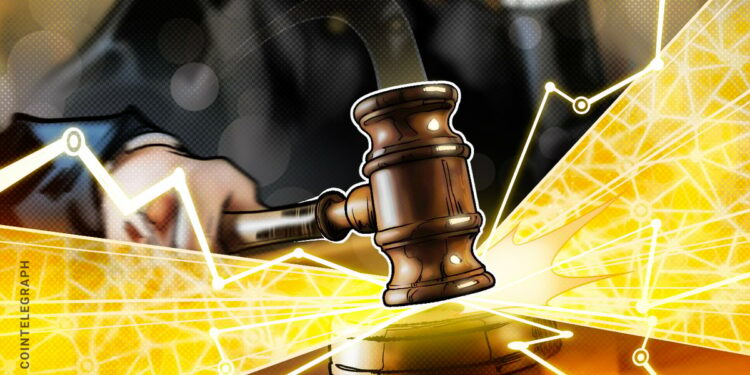Thomas Dünser, board member of @bcfounders published an article about the chances and risks of regulations with DeFi.
Read it herehttps://t.co/Ym1ZvYFmcd pic.twitter.com/BI4bfwXlIf
— BFG Blockchain Founders Group AG (@bcfounders) February 22, 2022
Neither the trend toward decentralization nor toward NFTs was unexpected, said Dünser. “With our national token law, we have created the basis for a broad range of tokenizations, even going beyond NFTs. We have deliberately tried to think far beyond the current use cases of blockchain in our legislation. So, I don’t expect that we will have to re-regulate here anytime soon.”
Liechtenstein regulators have also taken the trend of decentralization into account in the Blockchain Act. The TVTG is “open for innovation” and flexible, “principle- and role-based — as a counter-model to the otherwise usual rule- and business model-based regulation” and “technology-neutral.”
In the Blockchain Act, activities are subject to regulatory requirements if they pose risks to users, regardless of the business model in which they are provided. In doing so, service providers themselves have to consider how to mitigate the risks, whether with technology or human resources. Dünser said:
“Given the rapid pace of technology-driven innovation, the ability of the legal system to innovate is critical. Without it, we not only slow down innovation but also face considerable legal uncertainty. Neither of these can be in the interest of states.”
In Liechtenstein, regulators have, therefore, established an innovation framework with the aforementioned state innovation process and the Regulatory Laboratory at the FMA. In Dünser’s view, it has proven to be “very successful”; however, since the important financial market laws in the European Economic Area are defined at the European level, analogous structures would be necessary for the whole regional regulatory system.
Similarities between the TVTG and MiCA
MiCA is an important step toward a unified European regulatory system, and the TVTG served as a sort of model for MiCA. In particular, the MiCA draft adopts the Token Container Model of the TVTG, the licensing requirement for offering certain blockchain-related services, and also the information requirements for public offerings.
So, there shouldn’t be any major changes to the existing practice in Liechtenstein after MiCA enters into force, and both laws will be well-compatible, noted Dünser.
Crypto service providers newly regulated under MiCA will no longer need to be regulated under the Blockchain Act.
“Like Liechtenstein, the EU Commission sees the token economy — in addition to financial market applications — as a great opportunity for Europe.”
Liechtenstein’s experiences were, therefore, relevant for European lawmakers, and there were “lively discussions” between both sides that are reflected in many regulatory philosophical similarities between the TVTG and MiCA: the token container model, the role-based and, to some extent, principle-based regulation, and openness to innovation.
“However, we need to distinguish between the civil law and supervisory law parts,” Dünser noted, adding, “MiCA includes only the prudential components. Each member state has to clarify the civil law foundations itself. With the Blockchain Act, Liechtenstein already has a comprehensive and robust legal framework for all types of tokenization, from equity tokens, and other crypto assets to NFT and other tokenized rights.”
“We are prepared to act”
As to whether Liechtenstein will tighten rules for the crypto market after the FTX crash and other big collapses in 2022, Dünser said it would better avoid overregulation. Moreover, the Blockchain Act already regulates the custody of tokens and also prescribed legal separation in the event of bankruptcy.
Nevertheless, Dünser agreed that certain adjustments are necessary. “I see greater challenges in staking or borrowing and lending of customer tokens by crypto exchanges, which is not regulated in many jurisdictions.”
In the European Union, for example, regulation for credit institutions, which is set up for similar activities involving money, does not apply to crypto service providers. MiCA also does not cover this issue, at least not yet.
“In my view, this regulatory gap should be closed urgently. We are following and monitoring this development closely and are also prepared to act.”
Source link : https://cointelegraph.com/news/liechtenstein-adapts-blockchain-laws-to-developing-crypto-landscape
Author :
Publish date : 2023-05-01 07:00:00
Copyright for syndicated content belongs to the linked Source.


